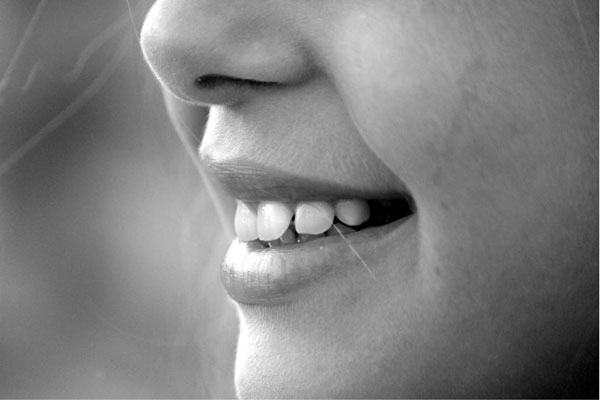Do you grind your teeth in your sleep and wake up with jaw pain?
Believe me, you are not alone. 22% of the global population (over 1 in 5 people) suffer from bruxism — also known as teeth grinding and jaw clenching.
The problem is:
Traditional approaches like wearing a mouth guard only address the symptoms of grinding. They do not stop the grinding from happening. If you want real relief from teeth grinding that gets to the root cause of the problem, you need to consider advanced therapies that go beyond simple mouth guards.
The good news? These advanced therapies do exist. Today you can find treatments that offer you lasting relief and let you wake up pain-free in the morning.
In this article, you will learn:
- Why Traditional Approaches Don’t Work
- Teeth Grinding is a Muscle Issue
- Advanced Bruxism Therapies You Should Know About
- The Game-Changing Treatment: Botox
- Other Advanced Approaches that Show Results
- How to Find the Best Treatment for You
Why Traditional Approaches Don’t Work
When it comes to treating bruxism, most people go to the dentist and get a night guard.
And there’s nothing wrong with that. Night guards do offer value. They will protect your teeth against grinding damage, and that’s helpful.
But they won’t stop you from grinding your teeth.
You will still clench and grind your teeth all night long. Your jaw muscles will still be overworking themselves. And you will still wake up with a headache and jaw pain.
It’s like slapping a plaster on a broken leg. Sure, it might help cover up the issue, but you still need to solve the problem, right?
Teeth Grinding is a Muscle Issue
In recent years, research has uncovered something very interesting about teeth grinding…
It turns out that it’s not a dental problem after all. It’s a muscle problem.
You see, when you grind your teeth, the masseter muscles (the big jaw muscles on the sides of your face) contract with massive force. We’re talking about 200 to 250 pounds of pressure here.
And this is why advanced therapies are effective. They focus on the root cause of your teeth grinding issues: the overactive jaw muscles. By targeting the cause and not just the symptoms, you can achieve real relief from grinding your teeth.
Advanced Bruxism Therapies You Should Know About
Want to know the most exciting news when it comes to bruxism treatments?
Botox.
I know what you’re thinking right now. “Isn’t that the ‘wrinkle-juice’ we all use to get rid of fine lines and laugh lines?”
Well, not quite. Botox has been used as a medical treatment for years. In fact, it’s been used to treat a variety of muscle-related conditions.
It works by temporarily paralyzing the overactive muscles, thereby reducing the pain and pressure.
And it’s not just us saying that. Studies have shown that patients who received Botox injections for their jaw pain and teeth grinding experienced significant improvement in their pain scores, going from an average of 7.1 to a low of 0.2 within six months of treatment.
The results were impressive:
- Patients report rapid pain relief within just a few weeks of treatment.
- Grinding episodes are dramatically reduced during sleep.
- Sleep quality improves for the patient and their partner.
- The patient’s teeth are protected from grinding damage without bulky, uncomfortable night guards.
And there’s something really special about this treatment…
Unlike mouth guards that you have to wear every single night, Botox injections can last for several months. Some treatments last between 3 to 6 months, which means you have months of relief from grinding with just one treatment session.
Other Advanced Approaches that Show Results
Botox isn’t the only advanced therapy that shows promise for bruxism relief.
Biofeedback Therapy
This high-tech solution involves the use of sensors to monitor your jaw muscle activity. As soon as the sensors detect you grinding your teeth, it will alert you — even during light sleep.
Over time, the idea is for your brain to learn how to recognize and stop the grinding motion before it even begins.
Targeted Physical Therapy
Specialized jaw exercises and massage can help retrain your muscles and reduce tension. Some physical therapists even specialize in treating patients with temporomandibular disorders.
Advanced Oral Appliances
Think of these as next-gen night guards. These new designs use advanced materials and a more precise fitting method. Instead of just protecting your teeth, these appliances can also guide your jaw into a better position
Some appliances are specifically engineered to keep the airway open during sleep, which can be an effective treatment for snoring or sleep apnea. According to this quality dental crowns in Tallahassee FL, these devices are custom-made based on digital impressions of your mouth, ensuring a comfortable fit and maximum effectiveness. This personalized approach addresses both oral health and overall well-being..
Combination Treatments
In many cases, the most successful treatment plan is often a combination of several different therapies. For example, Botox injections can be combined with stress management techniques and/or targeted exercises.
How to Find the Best Treatment for You
Not all advanced therapies work for all patients.
Here’s what you need to know:
The severity of your grinding is a factor to consider. Mild teeth grinders may get great results with advanced oral appliances. However, if you are a heavy grinder with significant pain, Botox may be your best option.
Your lifestyle is also a factor to consider. For example, if you travel frequently, treatments that don’t require nightly use may work best for you.
The most important factor is finding a specialist who is familiar with these advanced therapies.
Look for healthcare providers who:
- Have specific experience in treating bruxism
- Offer multiple treatment options, not just one
- Take a holistic approach to your symptoms
- Are up-to-date on the latest research
What to Expect During Treatment
The process is quite similar for most of these advanced bruxism therapies.
First, there is an evaluation of your specific case. This may include a muscle assessment, a sleep study, and other tests such as EMG to measure your jaw muscle activity.
After the assessment, you will discuss the treatment options that are available to you. Most of the time, your healthcare provider will recommend a combination of two or more treatments.
Almost all treatments have the following benefits:
- Little to no downtime/recovery time
- Improvement can be noticed within weeks
- The results are long-lasting (months instead of days)
- Less need for painkillers and other medications
The Investment You Make in Your Health
Advanced therapies tend to cost more upfront compared to basic night guards and the like.
But when you factor in the long-term benefits — better sleep, less pain, no more damage to your teeth — many people find that these treatments actually end up saving them money over time.
Plus, there’s one benefit you just can’t put a price on.
Waking up in the morning without any pain.
Wrapping It Up
Traditional approaches to teeth grinding focus on controlling the damage. Advanced therapies focus on actually fixing the problem.
Whether it’s Botox injections for those overactive jaw muscles, biofeedback therapy to train your brain to stop grinding, or combination treatments that address multiple factors at once — the modern solutions available to bruxism patients are light years beyond simple night guards.
The key is to work with a specialist who is familiar with these advanced therapies and can customize a treatment plan that is right for you.
Don’t forget:
- 8.6% of adults grind their teeth regularly during sleep.
- Advanced therapies focus on treating the underlying muscle issue, not just the symptoms.
- Botox has shown remarkable success in clinical studies.
- Combination treatments often offer the best long-term results.
- The investment in advanced treatment is worth it in the long run in terms of better health and quality of life.
If you are tired of waking up with jaw pain and headaches, it may be time to explore what advanced bruxism therapies can do for you.









